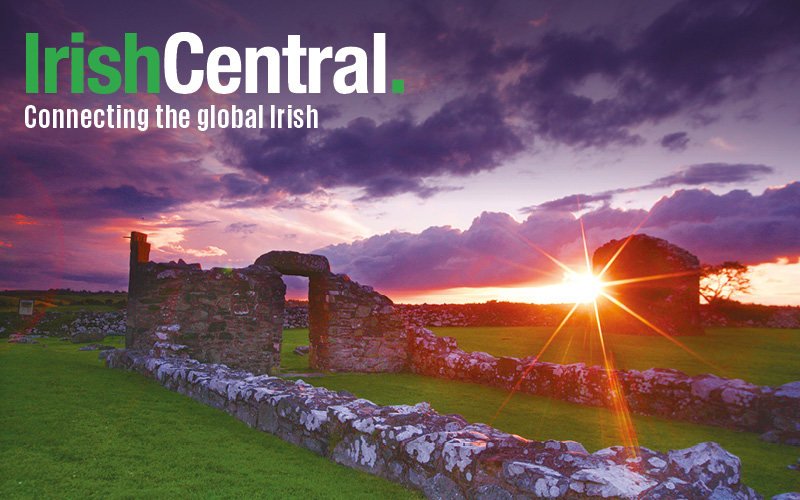THE Weldon House headquarters of the Michael J. Quill Irish Cultural and Sports Center will soon be abuzz with the arrival of hundreds of traditional Irish music aficionados and students as the days of the Catskills Irish Arts Week (CIAW) draw nigh. The highly successful festival now in its 13th year in the hamlet of East Durham in upstate New York breathes new life into the area so desperately in need of it since jet planes started taking people to more and more distant destinations.
In recent years at the CIAW some attention has been cast upon the musical scene in Baltimore, Chicago and Boston which helped create some exposure for the popular summer school outside the state of New York and raise its profile in that nomadic community of tradheads who want to be everywhere- and often are in these mobile times.
But it never escaped this insider's view that it is really New York and its devotion to Irish music and dance that is the essence of why the week attracts thousands every year to migrate north of New York City for the event. And so a fair amount of attention will be spent this year reflecting on some of those great New York influences that kept the tradition alive down through the decades and, in particular, one individual, Andy McGann, whose impact reached farther and wider than he could ever have imagined.
Andy McGann, the New York City fiddling legend who was born to Sligo immigrants, passed away at the age of 76 after a battle with cancer in July of 2004 just as the CIAW was unfolding in East Durham. As the newly installed artistic director of the CIAW that year, his passing wasn't unanticipated but I could hardly have imagined the impact that it would have upon the assembled teachers, musicians and students so many miles away.
One could expect the series of deserving plaudits and remembrances from the stages all week from musicians who had met and played with Andy, but there was a more palpable sense of community at large also where his passing became more significant because he never actually appeared at the Catskills Irish Arts Week summer school.
Thankfully he had appeared at the one-day festival in Schoharie County next door that gave rise to the CIAW, as I remember from one delightful drive home to New York City that we shared.
Everyone mourned his loss, remembered the good times and fondly played or listened to his music, especially at the closing festival where his Sligo disciple, Brian Conway, organized a set of tunes associated with McGann delivered by an reverential group of fiddlers, some of whom Conway taught in the Sligo style handed down from Michael Coleman to McGann.
The heartfelt camaraderie of the week with its the musical memories brought even greater meaning to the actual wake and funeral services that followed on the Sunday and Monday as so many Catskills attendees paid their respects to the family.
In the past year two independent recording projects will ensure that the McGann legacy will receive even greater awareness, and both will play a critical role at CIAW this year. The original video production of From Shore to Shore: Irish Traditional Music in New York City was re-released late last year on DVD with a newly produced companion section of footage.
Producer Pat Mullins and folklorist Becky Miller captured Andy McGann in relaxed settings for interviews and music, which gives an idea of why he was such a quiet hero and important cog in the musical wheels of New York City. There will be a screening on Tuesday, July 17 of the DVD at the Weldon House open to the general public.
McGann paid homage to Michael Coleman, to whom his parents introduced him as a young boy when Andy made a recording with Joe Burke, the Galway accordionist and Felix Dolan who played piano called A Tribute to Michael Coleman.
In April of 2006, John Daly brought in Joe Burke, Brian Conway and Felix Dolan for a concert at the Irish American Heritage Center on Chicago's Northside billed as a tribute to Andy McGann which is emerging as a CD released by Cl Iar-Chonnachta (www.cic.ie), the tasteful Irish language publishing company in Galway with a fine ear for traditional music.
It will be launched at the Willie Clancy Summer School during the week of July 8 and also at its U.S. counterpart, the CIAW at a rousing launch night at Darby's Pub on the weekend of July 20 and 21 in East Durham. Copies should be available at both locations.
The timing seemed right to further recognize a presence and a force that has never really left the New York scene even three years after his death.
Andy's quiet demeanor never allowed for boasting of his achievements or ability, though everyone else recognized it and watched him with amazement whether he was playing a large hall, stage or neighborhood pub.
Also, his was the classic immigration tale from Ireland where his parents wanted to hold onto the musical heritage of their birthplace and instilled it in their son and nurtured it by exposing him to the finest exponents who ever left the Emerald Isle as he grew up.
His music and steadfast dedication to it inspired so many musicians right up to his death and beyond, so it seems appropriate to give a new beginning to the Saturday festival that closes out the CIAW. And so on July 21, a new tradition will be born when the Quill Irish Cultural and Sports Center Grounds will host the first Andy McGann Irish Traditional Music Festival. We hope that its life will be as long and memorable as that of the man who inspired it in so many ways.
For more information on CIAW and the Andy McGann Festival contact 518-634-2286 or visit the web at www.eastdurham.org or email [email protected].




Comments